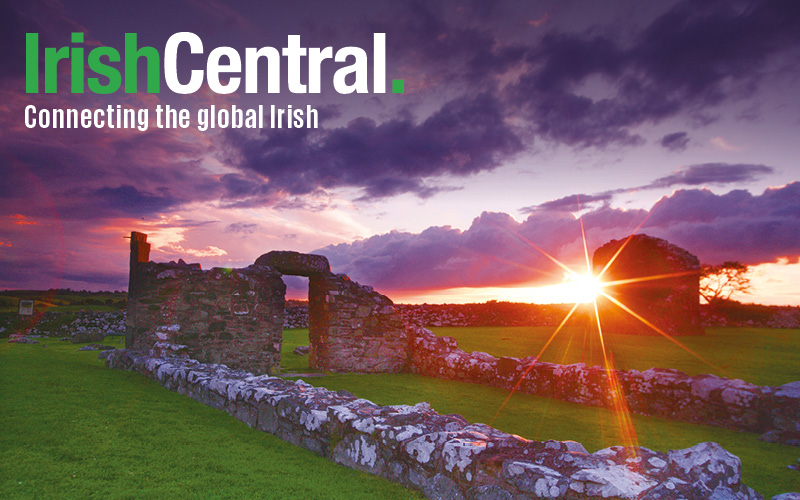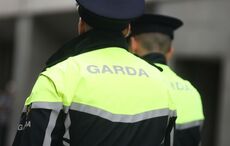On this day, January 30, in 1972 British soldiers shot dead 14 peaceful protesters in Derry. It is often known as the Bogside Massacre.
Bloody Sunday in Derry (as opposed to Bloody Sunday in Dublin) became so known when the British army shot dead 14 peaceful protesters in Derry on January 30, 1972.
"On Bloody Sunday in Dublin on 21 November 1920, British forces also shot dead 14 innocent people. On that tragic occasion, the innocent were 14 spectators at a Gaelic football match in Croke Park stadium.
Indeed before either of these two appalling events, the British army shot dead another 14 innocent people on King Street in Dublin city center at the end of the 1916 Rising, in addition to shooting dead two more shot on the nearby streets.
Commemorations for Bloody Sunday in Derry, as every year, take place on the Sunday closest to January 30 and this year’s event has come in for scathing criticism from two republican organizations in the city. It has prompted some to question exactly what Bloody Sunday stands for today.
Read more: Facebook page that celebrated deaths of Bloody Sunday victims taken down

Derry city mural depicting the scene of carnage on Bloody Sunday Derry (Photo Credit: sarahesperanza flickr.com)
The background to Bloody Sunday
These peaceful protesters in Derry were campaigning for civil rights and against the imposition of internment. Internment saw almost 2,000 people detained by British authorities in an apparent attempt to thwart the actions of the IRA. Over 1,800 of those interned hailed from an Irish Republican or Catholic background with just over 100 from a British Loyalist or Protestant one.
In the early days of internment, most of those arrested weren’t even members of the IRA and consisted of ordinary working-class Catholics. It officially began in August 1971 and officially ended in December 1975. Some Irish republicans claim, in cases highlighted below, that it is still in use today.
The massacre in Derry was followed by the farcical Widgery Tribunal that exonerated the British soldiers and placed the blame on the civil rights association for organizing an illegal march. However, after many years of painful campaigning, it was superseded by the 2010 Saville Tribunal which declared the killings as "unjustified" and placed the blame for the 14 deaths squarely at the feet of the British army. Saville also stated that Bloody Sunday “exacerbated the violent conflict of the years that followed.”
Read more: Why is Derry also called Londonderry?
2018 Bloody Sunday March in Derry
One of the march organizers Jim Keys, says that this year’s march is about inclusivity and the bringing together of all causes of social justice to stand as one voice. The theme of this year's march, "we shall overcome," is a tribute to the 50th anniversary of the Duke Street civil rights march.
In keeping with this theme and, according to Keys, the original meaning of the civil rights and anti-internment march in 1972, a wide range of social justice and environmental causes have been included. These include representatives from the Grenfell fire disaster, Repeal the 8th Amendment, Sabra and Shatilla, the Save Our Sperrins campaign and the death of British soldier William Best. Best was both a Catholic and a native of Derry. Other causes can be seen on the poster below.

Bloody Sunday 2018 (Photo Credit:bloodysundaymarch.org)
However, this year two notable Irish republican groups decided not take part and held their own commemoration events. Saoradh and the Irish Republican Socialist Party (IRSP).
The IRSP announced, “they will not attend this year’s Bloody Sunday march, nor participate in any events associated with the currently constituted Bloody Sunday Committee.”
They claim the Bloody Sunday committee selectively refused membership to individual family members in what they believe is a “coercive influence of the Socialist Workers Party, disingenuously acting under their alternate title ‘People Before Profit.’”
Paddy Gallagher, PRO of Saoradh Derry, states that the membership of Saoradh decided to withdraw from the Bloody Sunday march as a result of the “reformist poster for the event that quite clearly had a political agenda not linked to Bloody Sunday”.
Instead, says Gallagher, Saoradh commemorated the day on Saturday, January 27 by highlighting “British internment, the conditions Republican POWs face and ongoing political repression.” They held a wreath-laying ceremony at the Bloody Sunday monument and a white line picket at 'Free Derry' corner.
When asked if Saoradh objected to the wide range of groups being included at this years Bloody Sunday march, Gallagher responded that “Republican resistance being equated with State violence, with Hunger Strikers being put on a par with British Soldiers and those interned at the behest of MI5 being judged to be victims of injustice in the same way as self-confessed MI5 agents” is objectionable. Saoradh wants to see the British army regiment responsible for Bloody Sunday brought before the Hague international criminal court for war crimes.
He adds that Bloody Sunday was an Anti-Internment rally and that today the internment of Irish Republican activists such as Neil Hegarty and Tony Taylor demonstrates the continuation of internment by the British in Ireland.
However, Keys points out that internment in Ireland, Palestine and Catalonia was addressed during the Bloody Sunday events. This included remembering the internment of Tony Taylor, Neil Hegarty and Gabriel Mackle in Maghaberry prison. He claims that the entire Bloody Sunday 2018 March and events have gone “back to its roots” as the original march included a broad church of participants and was about anti-internment and civil rights.
This year’s programme of events continues to advocate justice for the 14 people shot down by the British army. Keys feels it is important to continue this fight as people feel that the “state has reneged on its responsibilities to properly hold to account people who take the life of other people.”
Peter Kearney is a freelance Producer and Journalist with BaldPolitiks, who produces media pieces on politics from another angle. He is interested in the Arab and Muslim worlds and the north of Ireland.
This article was submitted to the IrishCentral contributors network by a member of the global Irish community. To become an IrishCentral contributor click here.




Comments